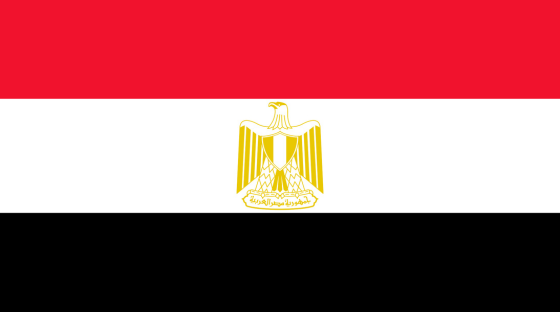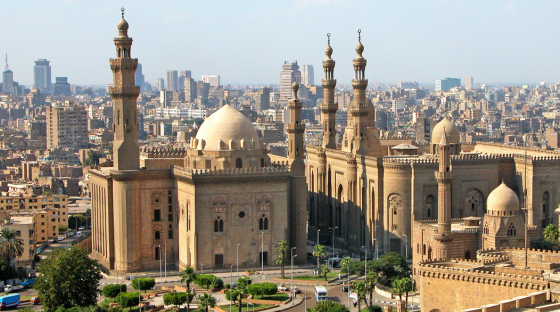-
Services
-
Software Project Delivery
-
Services
-
Solutions
-
Technologies
-
-
Network
-
Discover
-
Regions
-
Industries
-
Must-Read Guide
-
2026 Global Software Outsourcing Rates and Trends GuideDiscover why rates are just one aspect of the Accelerance Global Software Outsourcing Rates & Trends Guide, which offers valuable insights into the software development landscape.
-
-
-
Resources
-
Our Resources
-
Newest White paper
-
Aviation Ecosystem Modernization: A Holistic Approach for Meaningful TransformationModernize aviation by integrating people, processes, technology, and data
-
-
New eBook
-
 The True Cost of Software DevelopmentHidden costs can wreck your budget. Our new eBook breaks down the true cost of outsourcing—get your copy to stay ahead.
The True Cost of Software DevelopmentHidden costs can wreck your budget. Our new eBook breaks down the true cost of outsourcing—get your copy to stay ahead.
-
-
Featured White paper
-
Flow & Process OptimizationIn this white paper, you'll learn to streamline workflows, improve change management, and accelerate results.
-
-
-
About
-
About Accelerance
-
Our History
-
Accelerance: Our HistoryThere's great talent everywhere and great teams everywhere, which is the basis of the Accelerance model.
-
-
Software Without Borders
-
New Episode Every Week!Tune into our podcast Software Without Borders, the essential listen for technology leaders and business owners in the software sector who crave insights from the industry’s top minds.
-
-
Andy's Book
-
Synergea: A Blueprint for Building Effective, Globally Distributed Teams in the New Era of Software DevelopmentPeople are first and locations are secondary when it comes to software development success.
-
-
- Our Clients
Egypt

Overview
A strong government focus on growing the talent pool and fostering entrepreneurship has propelled Egypt's ICT sector from contributing 3.2% to the GDP in 2019 to an impressive 5.5% in 2024. This suggests Egypt is making very good progress towards its ambition of becoming a sought-after software outsourcing destination.
With a population of more than 100 million people, it has one of the longest histories of any country in the world. Described as the cradle of civilization, Ancient Egypt saw some of the earliest developments of writing, agriculture, urbanization, organized religion and central government. It has been part of both the Ottoman and the British empire, gaining independence in 1992, first as a monarchy and then as a semi-presidential republic.
Egypt has made major economic reforms in the past two decades, such as greatly reducing customs and tariffs and an overhaul of the tax system that included reducing corporate taxes from 40% to 20%. Corruption and limited trickle down of wealth are ongoing problems.
Tourism has rebounded since the country was effectively closed to visitors during the Arab Spring more than a decade ago. With 27% year-on-year growth in visitors in 2023, the sector now accounts for approximately 12% of GDP. The bustling capital Cairo, the Nile and the Giza pyramids, estimated to have been built 4500 years ago, are key attractions. Although travelers need to be alert for pickpockets, there is little violent crime and it is considered by the British Foreign office to be safe to visit.
The Accelerance Global Network is the most curated list of high-quality global teams ever assembled.
90
Developers
Total number of developers in our certified partner network by country
1
Certified Partner
Total number of certified partners in our global network by country.
12hrs
Time Travel (From NY)
Average flight time from NY to the major cities in the country.
40
Partner Innovation capability
The score reflects investment in STEM progrms and IT funding by country.
79
Partner Skill Level
Level of workforce skills and quality of education, including factors such as digital literacy, interpersonal skills, etc.
60
Partner Global Competitiveness
National productivity based on 12 core pillars, including government policy, infrastructure, economic stability, etc.
Medium
Software Outsourcing Readiness
Overall rating, based on the maturity of the tech sector, socio-political conditions, and on-the-ground research by Accelerance.

Talent Pool & Education
Fortune 500 companies Amazon, Microsoft, IBM, Uber as well as tech-powered start-ups Instabug, Vezeeta and Swvl have operations in Egypt, where the ICT sector is developing at a rapid pace. In 2022/2023, it grew by about 16%, making it the fastest-growing state sector for the fifth consecutive year. This economic boom has built on the growing number of companies setting up in Egypt and the exponential growth of digital exports, which reached $6.2 billion in 2023, up from $4.9 billion in 2022, a growth rate of about 26%.
The government has plans to further increase digital exports to reach $9 billion by 2026. Announcing the goal of the Digital Egypt Strategy for Offshoring, IT and Communication Minister Amr Talaa cited key advantages as Egypt’s handy location in a compatible timezone for many European countries, and skillful young population. The main pillars of the strategy are talent development, building the tech ecosystem and marketing it to the world.
A major push to improve digital literacy among young people has led to the introduction of a revamped secondary school system, where students utilize new technologies to access the Egyptian Knowledge bank, one of the world’s largest digital libraries. HackerRank recently commended Egypt for its teaching of JavaScript and SQL, rating its universities first, second and fifth for JavaScript in Europe, the Middle East and Africa, and second and fourth for SQL.
Language
The official language is Arabic, and most Egyptians speak one of several dialects. English is widely spoken in the tourist and business sectors, and in main cities such as Cairo. Most road signs in the country are in Arabic and English. To order a coffee, just say “ureed qahwa”.

Economic Outlook
Egypt has been battling its worst economic crisis in a decade, reaching a record inflation rate of 38% in September 2023. The country is impacted by the war in neighboring Gaza, and attacks by Houthis rebels in Yemen on Red Sea shipping hit revenue from the Suez Canal by more than half.
It has struggled to attract foreign investment and is the second-largest debtor to the International Monetary Fund, with four loan agreements since 2016. In 2023, the IMF stopped disbursements on a $3 billion loan because Cairo had not met conditions to move to a flexible exchange rate and reduce the footprint of the state and the military in the economy. However, in mid-2024 the fund was close to advancing a new loan arrangement worth $8 billion.This comes after Cairo agreed measures including a shift to a flexible exchange rate regime.
The economy has been showing signs of momentum with a fall in inflation and a pick up in private-sector activity after three years of contraction. In addition, a new deal with a United Arab Emirates sovereign investment fund to develop a prime stretch of Egypt’s Mediterranean coast could provide a welcome injection of foreign capital. Announced in February 2024, it was said to be worth an initial $35 billion and as much as $150 billion over time.
Political Conditions
President Abdel Fattah el-Sisi took power in a 2013 coup while serving as Egypt’s defense minister and armed forces commander. The coup overthrew the government of Islamist politician Mohamed Morsi, who won the country’s first democratic election in 2012. The previous limit of two presidential terms has now been removed and each term increased to six years.
Since the coup, El-Sisi has won huge majorities in what Freedom House describes as “unfair, noncompetitive contests”. In its latest Freedom in the World report, the pro-democracy organization has classified Egypt as "Not Free" and scored it low on both political rights and civil liberties.
El-Sisi was reelected in December 2023, gaining 89.6% of the vote in the highest turnout since the 1990s. During the campaign, the mobile phone of his most prominent challenger, Ahmed Tantawi, was hacked and his supporters were harassed and many arrested, despite warnings from the European Parliament.
Egypt’s foreign policy can be described as non-aligned. Population size, historical events, military strength, diplomatic expertise and strategic geographical position afford it extensive political influence and it has acted as a mediator in the conflict in Gaza.
Learn more about our customer stories.
Looking for a customer story in a specific technology or industry? Discover compelling customer narratives within a specific technology or industry that resonate with your unique software development needs.
